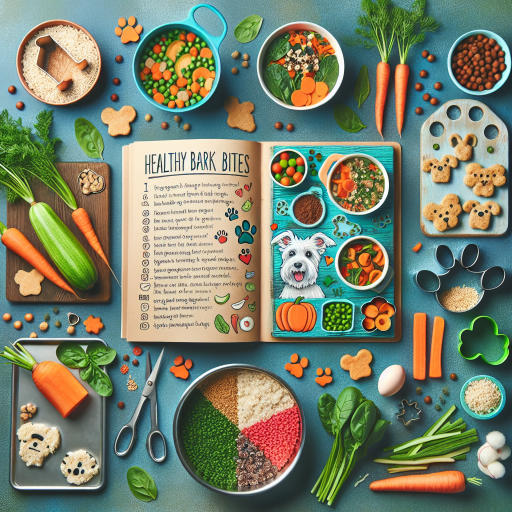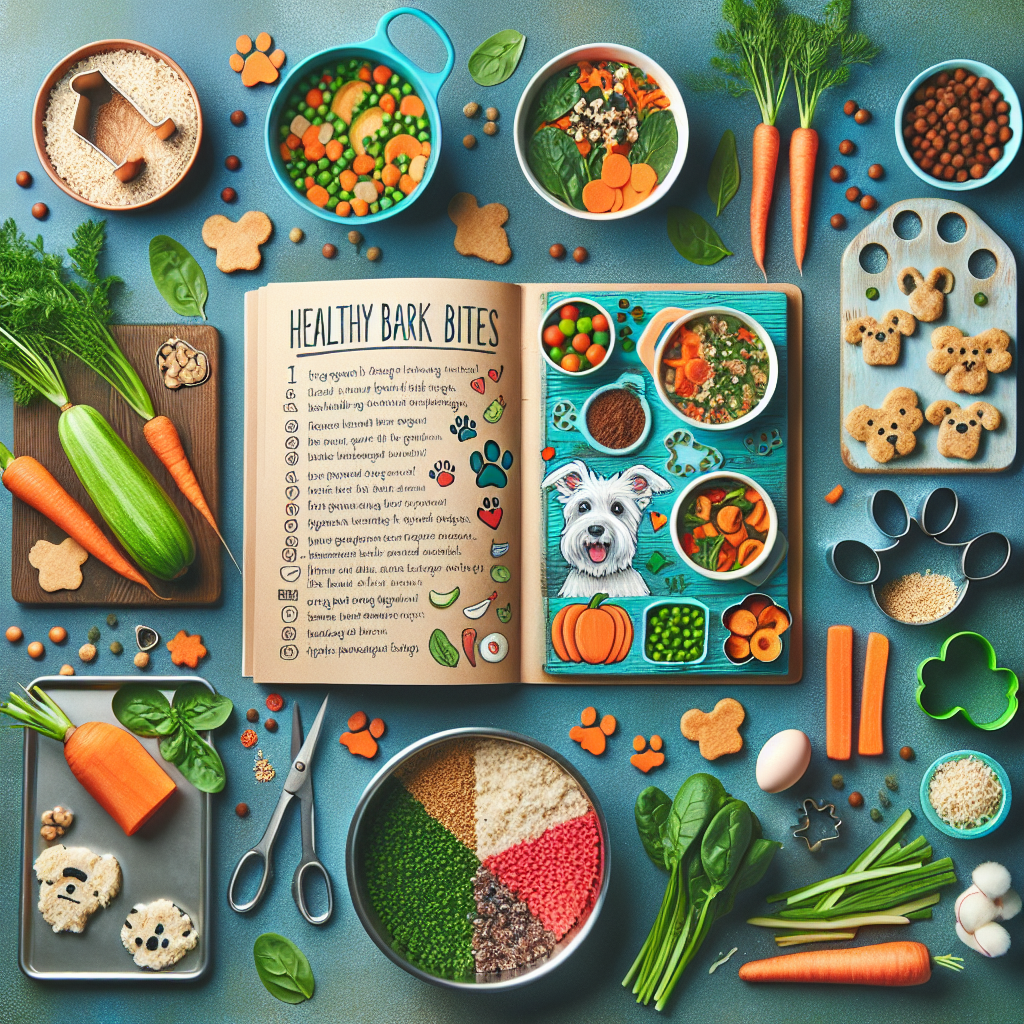Introduction to Vegetarian and Vegan Dog Food
So, you’re curious about vegetarian and vegan dog food? That’s fantastic! Many dog owners are exploring this exciting, plant-based world for their furry friends. Whether you’re considering making the switch for health reasons, ethical beliefs, or even environmental concerns, you’re not alone. Let’s dive into what it means to feed your dog a vegetarian or vegan diet.
What is Vegetarian and Vegan Dog Food?
First things first, let’s clarify the difference between vegetarian and vegan dog food.
- Vegetarian Dog Food: This type of food excludes meat but may include animal products such as eggs and dairy.
- Vegan Dog Food: This takes it a step further by eliminating all animal products, including eggs, dairy, and honey.
Both diets focus on plant-based ingredients like grains, vegetables, fruits, and legumes to provide the necessary nutrients your dog needs to thrive.
Why Consider a Plant-Based Diet for Your Dog?
There are numerous reasons why you might consider a vegetarian or vegan diet for your dog:
- Health Benefits: Some studies suggest that plant-based diets can help with allergies, improve coat condition, and even extend lifespan.
- Ethical Reasons: If you follow a vegetarian or vegan lifestyle yourself, you might want to align your dog’s diet with your values.
- Environmental Impact: Reducing meat consumption can lower your carbon footprint, and choosing plant-based options for your dog can contribute to this effort.
Debunking Common Myths
When it comes to feeding dogs a vegetarian or vegan diet, there are a lot of myths floating around. Let’s clear up some of the most common misconceptions:
- Dogs Can’t Thrive on a Plant-Based Diet: While dogs are carnivores by nature, they are also quite adaptable and can thrive on a well-planned vegetarian or vegan diet, as long as all essential nutrients are provided.
- Plant-Based Diets are Nutritionally Incomplete: Modern dog nutrition has advanced significantly. Many vegetarian and vegan dog foods are formulated to meet all of a dog’s nutritional requirements.
- It’s Expensive: While some specialty products can be pricey, there are budget-friendly options available, especially if you’re open to making homemade meals.
Consulting Your Veterinarian
Before making any significant changes to your dog’s diet, it’s crucial to consult with your veterinarian. They can provide personalized advice based on your dog’s specific health needs. A professional can also help you monitor your dog’s health during the transition period to ensure they are getting all the nutrients they need.
Final Thoughts
Switching your dog to a vegetarian or vegan diet is a big decision and one that should be made thoughtfully. With the right knowledge and support, it can be a rewarding choice for both you and your canine companion. Stay tuned as we delve deeper into the benefits, essential nutrients, delicious recipes, and tips for making the transition as smooth as possible for your furry friend.
Ready to explore more? There’s a whole world of plant-based nutrition waiting for you and your dog!
Benefits of a Plant-Based Diet for Dogs
Hey there, fellow dog lover! 🌟 Have you ever wondered if a plant-based diet could be beneficial for your furry friend? If so, you’re in for a treat (pun intended)! Let’s dive into some of the amazing benefits of switching your dog to a vegetarian or vegan diet.
1. Improved Digestion
One of the first things you’ll notice is that many dogs experience improved digestion on a plant-based diet. Unlike meat, which can sometimes be hard for dogs to digest, plant-based ingredients are often easier on their tummies. This can lead to **less bloating, gas, and even more regular bowel movements**. Happy tummies make for happy pups, right?
2. Allergy Relief
Did you know that many dogs are allergic to common meat proteins like chicken, beef, and dairy? Switching to a plant-based diet can help alleviate these allergies. **Less itching, scratching, and paw-licking** means your dog can enjoy their days without constant irritation. And let’s be honest, it’s a relief for us pet parents too!
3. Weight Management
Just like humans, dogs can struggle with weight issues. Plant-based diets tend to be lower in calories and fat, helping your dog maintain a **healthy weight**. This can be especially important for breeds prone to obesity. A lighter dog is a more energetic and playful dog!
4. Reduced Risk of Chronic Diseases
Research suggests that a plant-based diet can lower the risk of chronic diseases in dogs. Conditions such as **diabetes, heart disease, and certain types of cancer** have been linked to high meat consumption. Feeding your dog a diet rich in vegetables, grains, and legumes can contribute to a longer, healthier life.
5. Environmentally Friendly
It’s not just about our pets; it’s about the planet too. Producing meat has a significant environmental impact. By choosing a plant-based diet for your dog, you’re also making a more sustainable choice for the Earth. 🌍 **Less meat consumption means reduced carbon footprints, less water usage, and less deforestation.** It’s a win-win!
6. Ethical Considerations
If you’re already following a vegetarian or vegan lifestyle, extending this to your dog’s diet might align with your ethical beliefs. **Reducing the demand for animal products** means less suffering and exploitation of animals. Many pet owners find peace of mind in knowing that their pet’s diet is cruelty-free.
7. Shinier Coats and Healthier Skin
A plant-based diet can also contribute to your dog’s appearance. Nutrient-rich ingredients like sweet potatoes, flaxseed, and coconut oil can **improve skin health and give your dog a shinier, softer coat**. Who doesn’t love a dog that looks as good as they feel?
Conclusion
Switching your dog to a plant-based diet can offer a host of benefits, from improved digestion and allergy relief to weight management and even a shinier coat. While it’s important to ensure they get all the nutrients they need, the advantages of a vegetarian or vegan diet can make it well worth the effort. So, why not give it a try and see the positive changes for yourself?
Remember, every dog is unique, and it’s always a good idea to consult with your veterinarian before making any major changes to their diet. Happy feeding, and here’s to happier, healthier dogs! 🐾
Essential Nutrients for Dogs on a Vegetarian or Vegan Diet
Just like humans, dogs require a balanced diet to thrive and stay healthy. When opting for a vegetarian or vegan diet for your furry friend, it’s essential to ensure they receive all the necessary nutrients to support their overall well-being. Here are some key nutrients to pay attention to:
1. Protein
Protein is vital for muscle growth, repair, and overall body function in dogs. While meat is a traditional source of protein for canines, there are plant-based alternatives that can provide the necessary amino acids. Lentils, chickpeas, quinoa, and tofu are excellent sources of plant-based protein for dogs.
2. Omega-3 Fatty Acids
Omega-3 fatty acids play a crucial role in supporting a dog’s immune system, skin health, and coat condition. Flaxseeds, chia seeds, and algae oil are great sources of plant-based omega-3 fatty acids for dogs. Alternatively, you can opt for a supplement to ensure your dog receives an adequate amount.
3. Vitamin B12
Vitamin B12 is essential for maintaining a dog’s nerve function and producing red blood cells. Since this vitamin is primarily found in animal products, it’s important to supplement your dog’s diet with a plant-based source of Vitamin B12, such as fortified nutritional yeast or a supplement specifically formulated for dogs.
4. Calcium
Calcium is crucial for maintaining strong bones and teeth in dogs. While dairy products are a common source of calcium, there are plant-based alternatives like fortified plant milks, tofu, and leafy greens that can provide this essential mineral for your canine companion.
5. Iron
Iron is necessary for oxygen transport in a dog’s body and overall energy production. Plant-based sources of iron include lentils, spinach, pumpkin seeds, and quinoa. To enhance iron absorption, pair these foods with Vitamin C-rich fruits or vegetables.
Remember, it’s always a good idea to consult with a veterinarian or a pet nutritionist before making any significant changes to your dog’s diet. They can provide expert guidance on how to ensure your dog receives all the necessary nutrients while following a vegetarian or vegan diet.
IV. Homemade Vegetarian Dog Food Recipes
Making homemade vegetarian dog food can be both fun and rewarding! Not only do you get to control the ingredients, ensuring they are fresh and nutritious, but you also cater to your dog’s specific dietary needs and preferences. Let’s dive into some tasty, easy-to-make recipes that will have your pup’s tail wagging in no time.
1. Veggie Delight Bowl
This colorful bowl is packed with essential nutrients and flavors that your dog will love!
Ingredients:
- 1 cup of boiled brown rice
- 1/2 cup of cooked lentils
- 1/2 cup of chopped carrots
- 1/4 cup of green peas
- 1 tablespoon of olive oil
- 1/4 teaspoon of turmeric (optional)
Instructions:
- Cook the brown rice and lentils separately according to package instructions.
- In a large bowl, combine the cooked rice and lentils with the chopped carrots and green peas.
- Drizzle the olive oil over the mixture and, if using, sprinkle the turmeric for an added anti-inflammatory boost.
- Mix everything thoroughly and let it cool before serving it to your dog.
Benefits:
This recipe is not only rich in fiber but also provides essential vitamins like A and C from the carrots and peas. Lentils are a great source of protein and brown rice offers a good mix of carbs and fiber.
2. Sweet Potato & Quinoa Medley
Sweet potatoes are a favorite among dogs. This recipe combines them with quinoa and veggies for a balanced meal.
Ingredients:
- 1 cup of cooked quinoa
- 1 medium sweet potato, peeled and diced
- 1/2 cup of chopped spinach
- 1/4 cup of blueberries
- 1 tablespoon of coconut oil
- 1/4 teaspoon of cinnamon (optional)
Instructions:
- Cook the quinoa according to the package instructions and set aside.
- Boil or steam the sweet potato cubes until they are soft.
- In a large mixing bowl, combine the cooked quinoa, sweet potato, chopped spinach, and blueberries.
- Add the coconut oil and, if desired, sprinkle with cinnamon.
- Mix well and allow it to cool before serving.
Benefits:
Sweet potatoes are loaded with beta-carotene and dietary fiber, while quinoa is a complete protein packed with essential amino acids. Spinach adds iron and blueberries offer antioxidants.
3. Chickpea & Veggie Stew
This hearty stew is perfect for those chilly days and provides your dog with a comforting yet nutritious meal.
Ingredients:
- 1 cup of cooked chickpeas
- 2 cups of vegetable broth (low sodium)
- 1 cup of chopped zucchini
- 1/2 cup of diced tomatoes
- 1/4 cup of finely chopped parsley
- 1 tablespoon of nutritional yeast
Instructions:
- In a pot, combine the vegetable broth, zucchini, and diced tomatoes. Bring to a boil.
- Add the cooked chickpeas and reduce the heat to a simmer.
- Let the stew simmer for about 15-20 minutes until the vegetables are tender.
- Stir in the chopped parsley and nutritional yeast for a cheesy flavor and extra vitamins.
- Allow the stew to cool before serving to your dog.
Benefits:
This stew is rich in protein from the chickpeas and offers a variety of vitamins from the zucchini, tomatoes, and parsley. Nutritional yeast adds a boost of B-vitamins and a savory taste.
Creating these recipes at home ensures that your dog gets wholesome, nutritious meals tailored to their needs. Plus, the joy of seeing them enjoy a meal you’ve prepared makes it all worth it!
Homemade Vegan Dog Food Recipes
Are you looking to provide your furry friend with a nutritious and delicious homemade meal? Look no further! Here are some easy and tasty vegan dog food recipes that your pooch will love:
1. Lentil and Sweet Potato Stew
- Ingredients:
- 1 cup of dried lentils
- 1 sweet potato, peeled and diced
- 2 carrots, diced
- 4 cups of vegetable broth
- 1 tsp of turmeric
- Instructions:
- In a large pot, combine lentils, sweet potato, carrots, vegetable broth, and turmeric.
- Bring to a boil, then reduce heat and simmer for 30 minutes or until lentils are cooked.
- Mash some of the mixture to create a thick stew-like consistency.
- Let cool before serving to your dog.
2. Quinoa and Mixed Vegetables Bowl
- Ingredients:
- 1 cup of cooked quinoa
- 1/2 cup of mixed vegetables (such as peas, carrots, and green beans)
- 1 tbsp of olive oil
- 1/4 cup of chopped parsley
- Instructions:
- Mix cooked quinoa and mixed vegetables in a bowl.
- Drizzle olive oil over the mixture and toss to combine.
- Sprinkle chopped parsley on top for added flavor.
- Serve at room temperature to your dog.
3. Peanut Butter and Banana Bites
- Ingredients:
- 1 ripe banana, mashed
- 2 tbsp of natural peanut butter
- 1/2 cup of rolled oats
- 1/4 cup of shredded coconut
- Instructions:
- Mix mashed banana and peanut butter in a bowl until well combined.
- Add rolled oats and shredded coconut to the mixture and mix thoroughly.
- Form small balls with the mixture and place them on a baking sheet.
- Bake at 350°F for 15 minutes or until golden brown.
- Let cool before serving as a tasty treat to your dog.
These homemade vegan dog food recipes are not only nutritious but also easy to prepare. Your dog will surely wag their tail with delight at mealtime!
Store-Bought Vegetarian and Vegan Dog Food Options
Hello there, fellow pet parent! If you’re considering transitioning your furry friend to a plant-based diet, you might be wondering about ready-made options. Luckily, there are several high-quality store-bought vegetarian and vegan dog foods available that are both nutritious and convenient. Let’s dive into some popular options!
Top Vegetarian and Vegan Dog Food Brands
Finding just the right product can feel a bit overwhelming, so here are some well-regarded brands that can make your decision easier:
- V-Dog: This is a 100{7493f20db4b8ae176bcbf41d5f5213ca77630d75c7ca8b92d85b990b084e1c85} vegan dog food brand that offers both dry kibble and treats. V-Dog is known for its balanced nutrition and high-quality ingredients. Perfect for adult dogs, it has a blend of plant-based proteins, essential vitamins, and minerals.
- Halo Holistic Garden of Vegan: Halo provides a complete and balanced diet without any animal products. They use ingredients like chickpeas, green peas, and wholesome grains, ensuring your pup gets all the necessary nutrients.
- Natural Balance Vegetarian Formula: This brand is another excellent choice for pet owners looking for vegetarian options. It’s crafted with brown rice, oatmeal, and green peas, offering a rich source of protein and fiber.
- Wild Earth: Known for its science-driven approach, Wild Earth’s vegan dog food is formulated by veterinarians. Packed with protein from yeast and nutritious veggies, it’s designed to support your dog’s overall health and vitality.
Key Nutrients to Look For
When choosing a store-bought vegetarian or vegan dog food, it’s crucial to ensure that it meets all your dog’s nutritional needs. Here are some key nutrients to keep an eye out for:
- Protein: Make sure the food has sufficient high-quality plant-based proteins from sources like peas, lentils, or chickpeas.
- Amino Acids: Essential amino acids such as taurine and L-carnitine are vital for your dog’s heart health and overall well-being.
- Vitamins and Minerals: Look for foods fortified with vitamins A, D, E, and B-complex, as well as crucial minerals like calcium and phosphorus for strong bones and teeth.
- Omega Fatty Acids: Omega-3 and Omega-6 fatty acids support skin and coat health, so check for ingredients like flaxseed or algae oil.
- Fiber: A good amount of fiber is necessary for digestion. Ingredients like sweet potatoes, carrots, and peas can provide this.
Transition Tips
Switching your dog to a new diet should be done gradually to avoid any digestive upset. Here are a few tips to help with the process:
- Start Slow: Begin by mixing a small amount of the new food with their current diet. Gradually increase the new food while decreasing the old food over a week or two.
- Monitor Health: Keep an eye on your dog’s health, energy levels, and stools. Any significant changes may require a slower transition or consultation with your vet.
- Stay Consistent: Consistency is key. Ensure that you stick to the new diet once your dog has fully transitioned.
Conclusion
Choosing store-bought vegetarian or vegan dog food can be a fantastic way to provide a balanced diet for your pup while aligning with your personal values. Brands like V-Dog, Halo, Natural Balance, and Wild Earth offer nutritious and delicious options to keep your furry friend happy and healthy. Remember to check for essential nutrients and transition gradually for the best results. Happy feeding!
Tips for Transitioning Your Dog to a Plant-Based Diet
So, you’ve made the decision to transition your furry friend to a plant-based diet – congratulations! It’s a great choice for both your pet’s health and the environment. However, just like any dietary change, it’s important to make the transition gradually and with care to ensure your dog’s nutritional needs are met. Here are some tips to help you ease your dog into their new diet:
Consult with a Veterinarian
Before making any changes to your dog’s diet, it’s crucial to consult with a veterinarian. They can provide guidance on how to ensure your dog is getting all the necessary nutrients from a plant-based diet. Your vet may also recommend specific supplements to add to your dog’s meals to prevent any deficiencies.
Start Slowly
When transitioning your dog to a plant-based diet, it’s best to do it gradually. Start by mixing small amounts of vegetarian or vegan food with their regular diet and gradually increase the portion of plant-based food over a period of several days or weeks. This will help prevent any digestive upset and allow your dog’s system to adjust to the new diet.
Monitor Your Dog’s Health
Keep a close eye on your dog’s health throughout the transition process. Look out for any changes in their energy levels, coat condition, stool quality, and overall well-being. If you notice any concerns, consult with your veterinarian to address them promptly.
Choose High-Quality Plant-Based Foods
When selecting vegetarian or vegan dog food, opt for high-quality, nutritionally balanced options. Look for products that are formulated to meet AAFCO (Association of American Feed Control Officials) standards to ensure they contain all the essential nutrients your dog needs. You can also consider homemade recipes using wholesome ingredients to provide a well-rounded diet.
Stay Consistent
Consistency is key when transitioning your dog to a plant-based diet. Once you’ve found a food that works well for your furry friend, stick with it and avoid frequent changes. This will help maintain your dog’s digestive health and make it easier to monitor any potential issues that may arise.
Be Patient and Positive
Transitioning your dog to a plant-based diet may take time, so be patient and positive throughout the process. Remember that every dog is unique, and it may take some trial and error to find the right balance of nutrients for your pet. Celebrate small victories and milestones along the way!
By following these tips and being mindful of your dog’s individual needs, you can successfully transition them to a plant-based diet and support their health and well-being in the long run. Remember, a little love and care go a long way when it comes to your furry companion’s diet!





